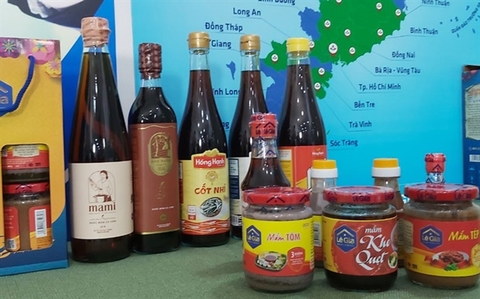
Traditional fish sauce is being exported to more and more countries around the world. – Photo doanhnhansaigon.vn
As traditional Vietnamese fish sauce is being sold in more and more countries around the world, businesses need to pay attention to their packaging and help consumers differentiate between traditional and industrial varieties, experts have said.
Link Nature Power Joint Stock Company produces the Mami brand of traditional fish sauce and exports it to the US, Canada, South Korea, and Japan besides being one of the few Vietnamese businesses to sell on Amazon.
Le Ba Linh, who founded the company, said over 70 per cent of its customers are white.
Foreign users usually cook with fish sauce rather than dip food in it, he added.
Le Ngoc Anh, CEO of Le Gia Co. Ltd, which exports traditional fish sauce to Russia, South Africa and South Korea and is preparing to ship to the US and EU, said exporting fish sauce is a way to take Vietnamese cuisine to other countries.
But other countries pay great attention to quality, certification and origin, and so the packaging must have all the required information and be printed bilingually.
Other brands revealed they had to redo their packaging multiple times to suit foreign markets.
Viet Nam’s largest competitor is Thailand, which mostly produces fish sauce industrially, and so Viet Nam has a competitive edge in the traditional segment.
Tran Huu Hien, CEO of Bay Hong Hanh Produce – Commercial – Service Co. Ltd, said businesses need to spread awareness among local and international consumers about the distinctive characteristics of traditional fish sauce, including odour.
If they are absent, Viet Nam’s traditional sauces would become too similar to Thailand’s and lose their competitive edge in the global market, he said.
The Viet Nam Traditional Fish Sauce Association, which recently received permission to be set up, will issue criteria to differentiate traditional sauce from industrial, and create logos to help customers tell the difference between the two. VNS